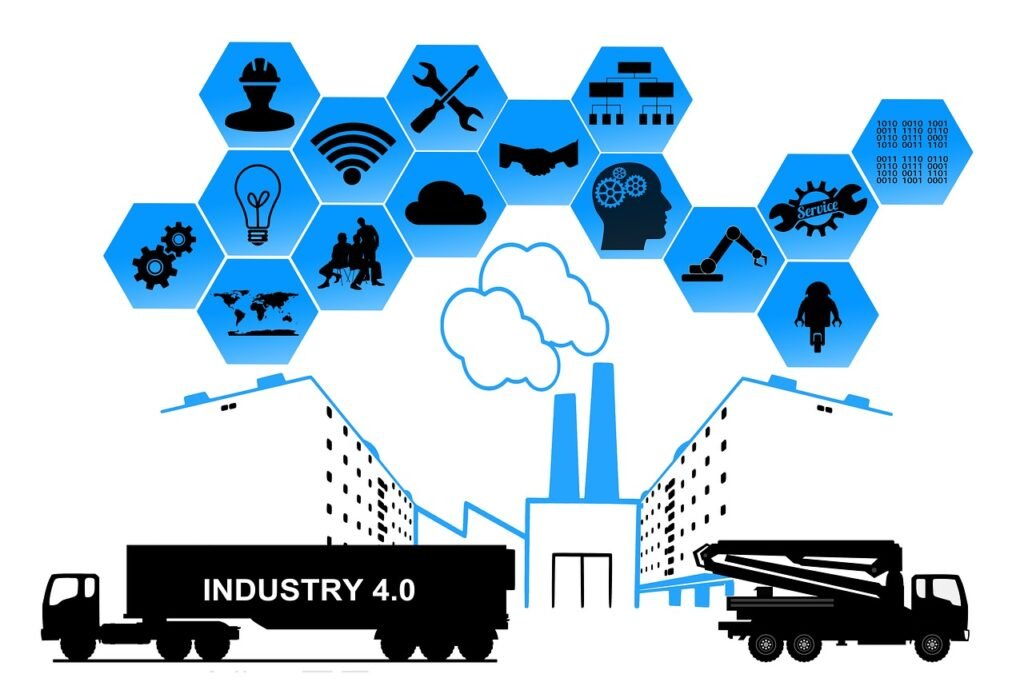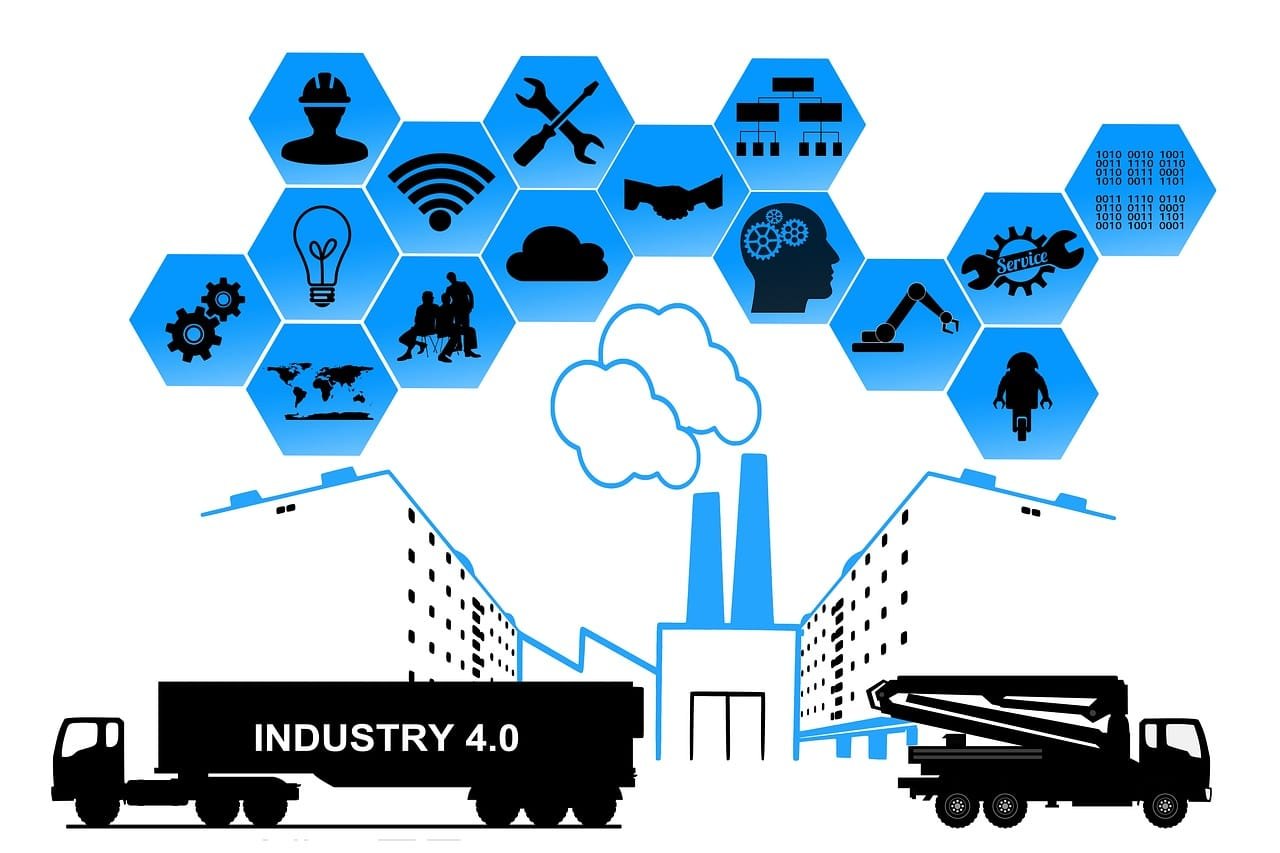The Current Landscape of Information and Communication Technology Companies
Introduction to ICT Companies
Information and Communication Technology (ICT) companies play a pivotal role in today’s increasingly digital landscape. At its core, ICT encompasses the integration of telecommunications, broadcasting media, audio-visual processing and transmission systems, intelligent building management systems, and information technology. This broad sector has transformed how individuals and businesses communicate, share information, and conduct everyday transactions.
Over the years, ICT companies have evolved from traditional telecommunication providers into multifaceted entities that deliver a wide range of services. These include software development, systems integration, cloud computing, and digital marketing solutions. This evolution has been driven by rapid advancements in technology, consumer demand for faster and more reliable communication, and the growing necessity for businesses to adopt digital tools to remain competitive.
The relevance of ICT in various sectors cannot be overstated. In education, ICT facilitates innovative teaching methods, enhances student engagement, and enables access to a vast array of online resources. This adaptation has been particularly significant in recent years, as remote learning has become essential. In the healthcare sector, ICT companies provide telemedicine solutions, electronic health records, and mobile health applications, which improve patient care and streamline administrative processes.

Moreover, the business landscape has witnessed profound changes due to the influence of ICT. Companies across all industries are adopting digital platforms for communication, marketing, and operational efficiencies. This technological integration not only enhances productivity but also fosters collaboration and data-driven decision-making. As a result, the role of ICT companies is more crucial than ever, contributing to the development of smart innovations that address real-world challenges and improve lives.
Market Trends and Growth
The landscape of Information and Communication Technology (ICT) companies is continuously evolving, driven by significant market trends that notably influence growth trajectories. One of the most prominent trends is the rapid expansion of cloud computing. According to industry reports, the global cloud computing market was valued at approximately $370 billion in 2020 and is projected to reach over $1 trillion by 2027, reflecting a compound annual growth rate (CAGR) of about 17.5%. This growth is attributed to the increasing adoption of cloud services across various sectors, enabling organizations to enhance operational efficiency and agility.

Another crucial trend shaping the future of ICT companies is the rise of artificial intelligence (AI). As AI technologies become more prevalent, businesses recognize their potential to improve decision-making processes, automate tasks, and personalize customer experiences. A recent study predicts that the AI market will witness a CAGR exceeding 40%, with projected revenues reaching approximately $733 billion by 2027. This surge presents significant opportunities for ICT companies to integrate AI solutions into their services, positioning themselves as leaders in innovation.
Moreover, the escalating demand for cybersecurity solutions cannot be overlooked. With the growing interconnectivity of devices and increased frequency of cyber threats, organizations are prioritizing cybersecurity investments. Research indicates that the global cybersecurity market will grow from $217 billion in 2021 to over $345 billion by 2026, at a CAGR of around 10.5%. This trend emphasizes the necessity for ICT companies to develop robust cybersecurity offerings, catering to the urgent needs of their clients.
In conclusion, the current market trends highlight the substantial growth potential for ICT companies in areas such as cloud computing, artificial intelligence, and cybersecurity. As these sectors continue to thrive, ICT firms that strategically align their offerings with these trends are likely to realize sustainable growth and success in the future.
Impact of Global Events
The landscape of Information and Communication Technology (ICT) companies has been profoundly influenced by recent global events, notably the COVID-19 pandemic and ongoing geopolitical tensions. The sudden onset of the pandemic acted as a catalyst, accelerating digital transformation across various sectors. Businesses, faced with physical restrictions and changing consumer behaviors, rapidly adopted digital tools to maintain operations. This shift resulted in a significant surge in demand for cloud computing, online collaboration platforms, e-commerce solutions, and cybersecurity measures. Many ICT companies were able to pivot quickly, offering innovative solutions that facilitated remote work, reduced downtime, and enhanced communication effectiveness.
However, the pandemic also introduced a range of challenges for ICT firms. Supply chain disruptions, particularly in hardware manufacturing, hampered the ability of companies to meet the soaring demand for technology. Furthermore, the rapid evolution of remote work raised concerns regarding data privacy and security, compelling ICT companies to invest heavily in robust cyber defenses. The sector became increasingly aware of the vulnerabilities inherent in digital infrastructure, leading to a more proactive approach in addressing these issues.

In addition to the impacts of the pandemic, geopolitical tensions have added another layer of complexity to the ICT landscape. Issues such as trade wars, regulatory challenges, and shifting alliances have forced companies to reassess their global strategies and operations. These tensions can limit access to critical technologies and markets, prompting firms to diversify their supply chains and seek alternative partnerships. Despite these challenges, the current global climate has also provided ICT companies with opportunities to innovate and lead in a more interconnected, digital-first world. By adapting to these dynamics, ICT companies are not only navigating current challenges but are also poised to take advantage of emerging trends and technologies in a rapidly evolving landscape.
Emerging Technologies in ICT
The Information and Communication Technology (ICT) sector is experiencing significant transformation driven by several emerging technologies. Among these, 5G, the Internet of Things (IoT), and blockchain are at the forefront, significantly influencing communication strategies, data management frameworks, and overall service delivery models in the industry.
5G technology, characterized by its high-speed connectivity and low latency, is revolutionizing telecommunications. This advancement allows for the development of more sophisticated applications, enhancing user experiences in various sectors such as healthcare, automotive, and entertainment. Companies like Verizon and Huawei are leading in the deployment of 5G networks, facilitating a shift towards smarter and more connected ecosystems.
Another transformative technology is the Internet of Things (IoT), which connects everyday devices to the internet, enabling them to collect and exchange data. IoT provides businesses with valuable insights and real-time data, facilitating informed decision-making. Companies like Cisco and IBM are at the forefront of IoT solutions, delivering platforms that enable seamless interconnectivity for smart cities, industrial automation, and home automation systems.

In addition to these technologies, blockchain is gaining traction within the ICT industry. By providing a decentralized platform for securely managing and recording transactions, blockchain enhances data integrity and transparency. Its applications span various sectors, including finance, supply chain management, and digital identity verification. Organizations such as IBM and Microsoft are pioneering blockchain initiatives, thus revolutionizing traditional processes and enhancing operational efficiency.
Ultimately, the integration of 5G, IoT, and blockchain in ICT not only improves the communication landscape but also reshapes how businesses operate and deliver services. As these technologies continue to evolve, they represent crucial components that will drive future innovations within the ICT sector.
Challenges Facing ICT Companies
The Information and Communication Technology (ICT) sector is experiencing rapid evolution, yet it faces numerous challenges that impede its growth and stability. One of the most pressing issues is data privacy concerns. As companies increasingly collect vast amounts of data, ensuring this information is secure becomes paramount. Breaches not only undermine customer trust but also result in significant financial repercussions and potential legal liabilities. Companies are now compelled to adopt better cybersecurity measures and enhance transparency in their data handling practices.
Additionally, regulatory compliance remains a significant hurdle for ICT firms. With the landscape of regulations constantly shifting, organizations must remain vigilant to comply with both local and international laws regarding data protection, intellectual property, and telecommunications. The implementation of frameworks such as the General Data Protection Regulation (GDPR) in Europe has set a precedent that affects companies worldwide. This evolving regulatory environment necessitates an investment in legal expertise and compliance technologies to navigate these complexities, which may divert resources from innovation and development.
Moreover, there is an acute talent shortage in the ICT sector, particularly in specialized areas such as software development, data science, and cybersecurity. The rapid advancement of technology often outpaces the skill development of the workforce, leading to a gap between current industry needs and available talent. To address this challenge, many ICT companies are investing in training programs, partnerships with educational institutions, and flexible working arrangements to attract and retain skilled professionals.
The combination of data privacy issues, regulatory challenges, and talent shortages creates a multifaceted barrier to growth for ICT companies. By proactively addressing these obstacles, organizations can enhance operational efficiency, align with regulatory mandates, and cultivate a skilled workforce, ultimately ensuring their success in a competitive market.
Sustainability and Corporate Responsibility in ICT
In recent years, the Information and Communication Technology (ICT) sector has increasingly turned its focus toward sustainability and corporate social responsibility (CSR). This evolution is driven by both consumer demand and a collective acknowledgment of the industry’s impact on environmental and social issues. Companies are actively integrating environmentally friendly practices into their operations, reflecting a commitment to sustainable development. They are adopting various strategies to reduce their carbon footprints, improve energy efficiency, and develop eco-friendly technologies.

Leading ICT companies have initiated a plethora of sustainability projects aimed at minimizing waste and utilizing renewable energy. For instance, a notable example can be found in the practices of tech giants like Microsoft and Google. Microsoft has pledged to become carbon negative by 2030, indicating a clear direction towards not just reducing emissions but completely reversing them. This ambitious commitment signals a shift in how businesses within the sector view their ecological responsibilities. Similarly, Google has made significant strides towards operating on 100% renewable energy, successfully demonstrating that sustainable practices can coincide with business growth and profitability.
The benefits of adopting sustainability initiatives are multifaceted. Firstly, these practices can result in cost savings through improved energy efficiency and reduced waste. Secondly, companies that prioritize environmental and social stewardship often experience increased brand loyalty and customer engagement. A growing number of consumers prefer to align themselves with brands that demonstrate a commitment to sustainability. Furthermore, embracing corporate responsibility can enhance a company’s recruitment and retention strategies, attracting talent that values meaningful work and ethical practices.
As the landscape of the ICT sector continues to evolve, it is clear that sustainability and corporate responsibility will play increasingly significant roles in guiding corporate strategies and operational decisions. The proactive measures taken by leading companies underscore the potential for a more sustainable future within the industry, paving the way for a balance of innovation and environmental stewardship.
Consumer Preferences and Behavior
The landscape of Information and Communication Technology (ICT) is rapidly evolving, driven significantly by changing consumer preferences and behaviors. Today’s customers are increasingly demanding superior services that encompass faster connectivity, enhanced user experiences, and personalized solutions. This shift is compelling ICT companies to adapt their strategies to remain competitive in a market that prioritizes customer-centric innovation.
One of the major trends witnessed is the rising expectation for speed and reliability among consumers. As more devices connect to the internet, the need for higher bandwidth and seamless connectivity has become paramount. Customers are gravitating towards service providers that can offer not only greater speed but also consistent performance under varying loads. This expectation has pushed companies to invest in advanced technologies such as 5G and fiber optics to meet the escalating demands of consumers.

Moreover, personalized experiences are becoming a critical differentiator in the ICT sector. Consumers are seeking tailored solutions that cater to their individual needs and preferences. Businesses are increasingly leveraging data analytics and machine learning to understand consumer behaviors, enabling them to create customized offerings. Implementing feedback loops, where customer input shapes product development and service delivery, is crucial. By incorporating direct feedback from users, companies can enhance their offerings, ensuring higher satisfaction rates and fostering brand loyalty.
Another noteworthy aspect influencing consumer behavior is the growing emphasis on transparency and ethical practices. Today’s customers are more informed and concerned about privacy issues, leading them to favor providers that prioritize data protection and responsible use of information. As such, ICT companies are recognizing the importance of building trust through transparency in their practices.
In summary, understanding the evolving consumer preferences and behaviors is vital for ICT companies aiming to thrive in an increasingly competitive environment. Enhanced connectivity, personalization, and ethical standards are key factors driving company strategies and product offerings.
Future Outlook for ICT Companies
The future of Information and Communication Technology (ICT) companies appears promising, driven by current trends and emerging technologies that continue to reshape the industry. The COVID-19 pandemic has accelerated the adoption of remote work solutions, a trend that is likely to persist. As organizations increasingly embrace flexible work arrangements, ICT companies can expect heightened demand for tools that enhance collaboration and communication among distributed teams. Platforms offering seamless video conferencing, virtual project management, and collaborative software will play an integral role in maintaining productivity in this evolving landscape.

Additionally, innovative communication tools that facilitate real-time interactions, along with advanced data analytics capabilities, present significant growth areas for ICT companies. As businesses seek to improve customer engagement, the integration of artificial intelligence (AI) and machine learning within communication applications will enhance personalization and efficiency. The transition towards 5G networks is another catalyst, promising ultra-reliable low latency and high-speed data transfer, which will further empower new technologies and applications across various industries.
However, along with these opportunities come challenges that ICT companies must confront to remain competitive. Cybersecurity threats continue to evolve, necessitating robust security protocols and solutions to protect sensitive information. Moreover, the rapid pace of technological advancement requires ICT companies to continuously adapt and innovate, resulting in increased pressure on resources and talent acquisition. To address these challenges effectively, organizations must invest in research and development, ensure a skilled workforce, and foster a culture of agility and adaptability.
Ultimately, the ability to navigate the complexities of the ICT sector will define the future success of these companies. As they leverage new technologies and address emerging challenges, ICT companies that prioritize innovation and resilience will thrive in an increasingly digital world.
Conclusion
In the rapidly evolving realm of Information and Communication Technology (ICT), it is crucial to recognize the key takeaways presented in this discussion. The ICT landscape is continually transformed by swift advancements in technology and changing consumer preferences. As companies navigate this dynamic environment, the importance of adaptability has never been more pronounced. Organizations that embrace transformation and are willing to innovate will likely prosper, while those that resist change may face challenges and potential obsolescence.
Moreover, the significance of continuous innovation cannot be overstated. In the ICT sector, where new products and solutions frequently emerge, staying at the forefront is essential for maintaining competitive advantage. Companies must invest in research and development to explore new avenues for growth and enhance their offerings. This commitment to innovation should not only be confined to product development; businesses must also examine their operational processes and customer engagement strategies to ensure they align with the prevailing trends.
Furthermore, as developments within the ICT industry profoundly impact both businesses and consumers, it is incumbent upon stakeholders to remain informed about new trends and technologies. This awareness allows individuals and organizations to anticipate changes that may affect their operations, purchasing decisions, or daily lives. By actively engaging with the ICT sector’s fluctuations, stakeholders can better position themselves to leverage opportunities or mitigate risks associated with these changes.
In conclusion, the ICT landscape presents both challenges and opportunities. For businesses and consumers alike, understanding the importance of adaptability, innovation, and staying informed is essential to thrive within this fast-paced environment. It is only through such proactive strategies that one can navigate the complexities of the modern ICT landscape effectively.


